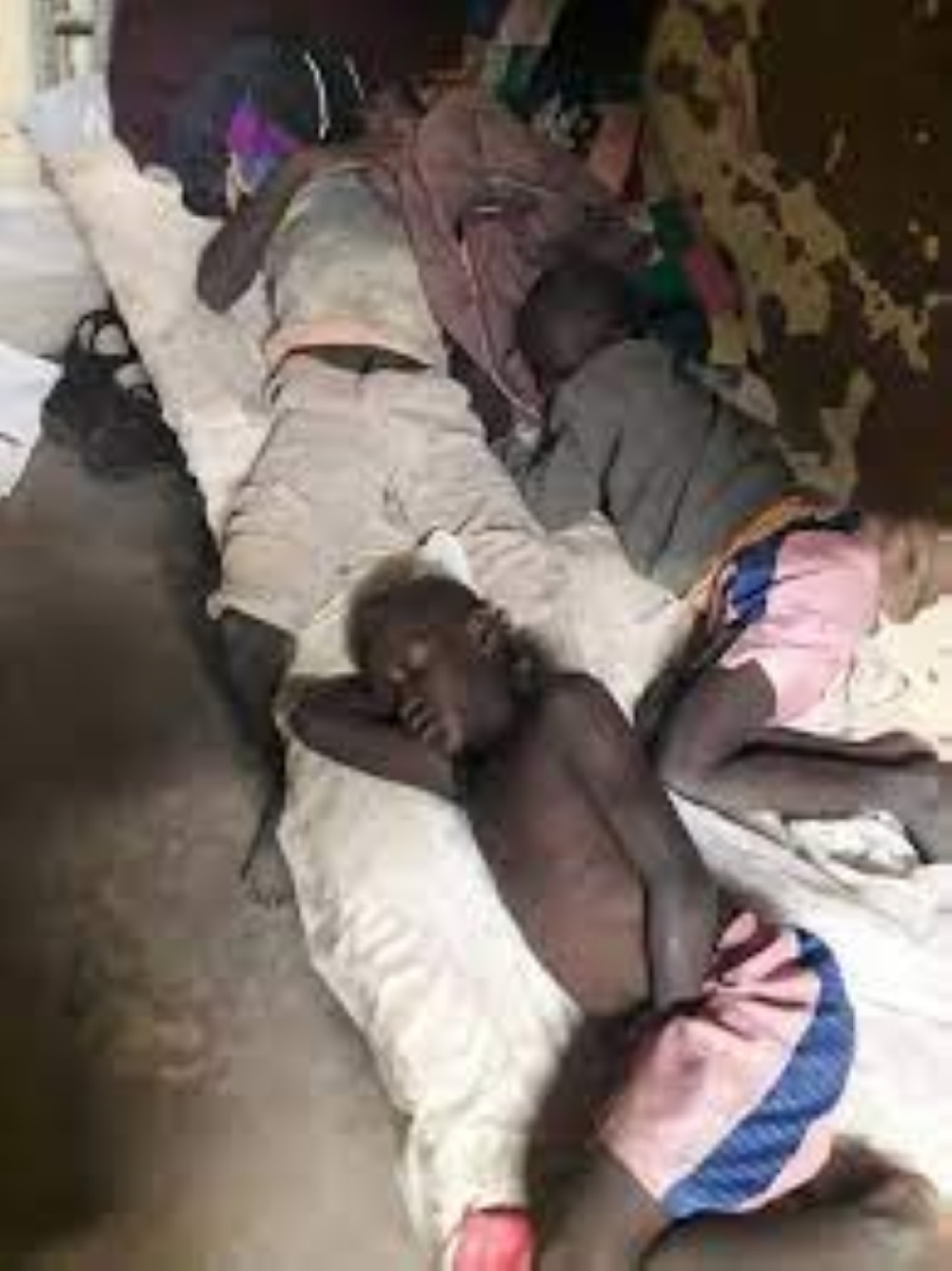Public school hostels unfit for occupation – AG
The Office of the Auditor-General (AG) has identified myriad issues that have led to the decay of government school hostels around the country. This has put learners in grave danger, and it recommended that all government buildings be assessed every three years.
At the majority of these schools, ceilings have collapsed and learners are exposed to live electric wires while damaged floors and broken toilets are the order of the day.
This in addition to blocked sewers and drains and doors without locks or hinges.
At some schools, makeshift classrooms and hostels are constructed of corrugated iron, while gas cylinders as stocked in makeshift kitchens - posing a danger to learners and cooking staff.
The AG Junias Kandjeke also asked the education ministry to explain the current deplorable state school infrastructure is in, despite government monies being spent on renovation and maintenance work.
It was also established that maintenance work has not been not carried out at government schools between 2017 and 2021 as per the Education Act, and some regions could not explain how they spent money budgeted for maintenance and renovation.
At Masokotuani Combined School in the Zambezi Region, classrooms had large holes in the floor, toilets did not work and there was a lack of water.
The walls at Mafuta Combined School sported deep cracks, while classrooms had no ceilings, gaping cracks in the floors and broken windows.
At Sangwali Secondary School, the doors to classrooms had no locks or hinges, windows were broken and ceilings had collapsed, with damaged light switches sporting exposed live wires.
No asset registers
In the Zambezi, Kavango East, Kavango West, Ohangwena and Omusati regions, the audit team was confronted by a lack of asset registers, while total asset replacement values also could not be provided.
In these regions, it was also found that routine and preventative maintenance was not performed on a regular basis by the respective regional councils or education departments, as is required by Cabinet.
These were the findings of a compliance audit report on government schools under the ministry of education for the financial years 2017/18 until 2020/2021, prompted by a health ministry report that raised the alarm on the state of government hostels.
The report also blamed the high failure rates of Namibian learners on the shortage of classrooms and the fact that learners have to share desks and chairs due to overcrowding.
“Hostels across the country are in bad condition and some of the hostels have been declared unsuitable for human habitation by the ministry of health. Moreover, it was established that there are no renovation needs assessments in the regions and that the hostels do not have renovation plans,” the AG said.
Another audit report by the Kandjeke's office pointed out that the deteriorated infrastructure is detrimental to learners’ health because they are forced to live in filthy conditions.
The auditors found that regional councils or directorates for education do not have maintenance strategies that govern planned and unplanned maintenance programmes.
[email protected]
At the majority of these schools, ceilings have collapsed and learners are exposed to live electric wires while damaged floors and broken toilets are the order of the day.
This in addition to blocked sewers and drains and doors without locks or hinges.
At some schools, makeshift classrooms and hostels are constructed of corrugated iron, while gas cylinders as stocked in makeshift kitchens - posing a danger to learners and cooking staff.
The AG Junias Kandjeke also asked the education ministry to explain the current deplorable state school infrastructure is in, despite government monies being spent on renovation and maintenance work.
It was also established that maintenance work has not been not carried out at government schools between 2017 and 2021 as per the Education Act, and some regions could not explain how they spent money budgeted for maintenance and renovation.
At Masokotuani Combined School in the Zambezi Region, classrooms had large holes in the floor, toilets did not work and there was a lack of water.
The walls at Mafuta Combined School sported deep cracks, while classrooms had no ceilings, gaping cracks in the floors and broken windows.
At Sangwali Secondary School, the doors to classrooms had no locks or hinges, windows were broken and ceilings had collapsed, with damaged light switches sporting exposed live wires.
No asset registers
In the Zambezi, Kavango East, Kavango West, Ohangwena and Omusati regions, the audit team was confronted by a lack of asset registers, while total asset replacement values also could not be provided.
In these regions, it was also found that routine and preventative maintenance was not performed on a regular basis by the respective regional councils or education departments, as is required by Cabinet.
These were the findings of a compliance audit report on government schools under the ministry of education for the financial years 2017/18 until 2020/2021, prompted by a health ministry report that raised the alarm on the state of government hostels.
The report also blamed the high failure rates of Namibian learners on the shortage of classrooms and the fact that learners have to share desks and chairs due to overcrowding.
“Hostels across the country are in bad condition and some of the hostels have been declared unsuitable for human habitation by the ministry of health. Moreover, it was established that there are no renovation needs assessments in the regions and that the hostels do not have renovation plans,” the AG said.
Another audit report by the Kandjeke's office pointed out that the deteriorated infrastructure is detrimental to learners’ health because they are forced to live in filthy conditions.
The auditors found that regional councils or directorates for education do not have maintenance strategies that govern planned and unplanned maintenance programmes.
[email protected]




Comments
Namibian Sun
No comments have been left on this article